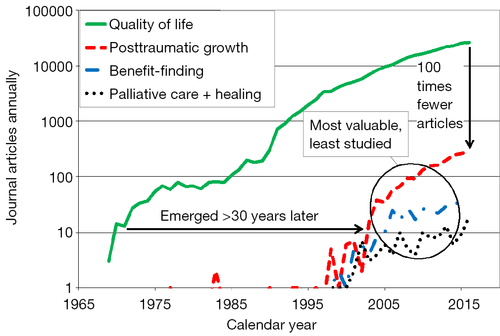Vol 6, No 3 Healing and Spirituality
Guest Editor:
Ann Berger, MSN, MD, National Institutes of Health, Clinical Center, Bethesda, Maryland, USA.
Palliative care providers have for a long time recognized that there are seriously ill or terminal patients who progress beyond the experiences of psychological trauma, coping, and acceptance. Such patients can feel changed for the better or stronger mentally compared to the way they were before their disease was diagnosed. This phenomenon of ending up stronger mentally than they were before the onset of their illness has most often been called “healing” in palliative care as well as in the field of integrative medicine. More generally healing is a type of personal change. Themes common across cases of integrity and wholeness include a sense of connection to self, others, phenomenal world, ultimate meaning, sense of meaning in context of suffering, capacity to find peace in present moment, experience of a sympathetic, non-adversarial connection to the disease process, and an ability to choose attitude to adversity; open to potential in the moment greater than need for control (1).

